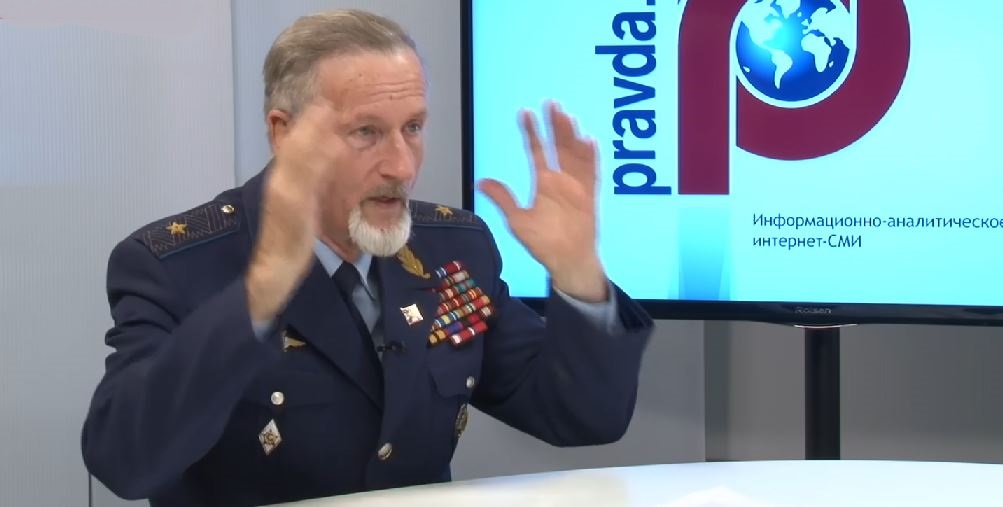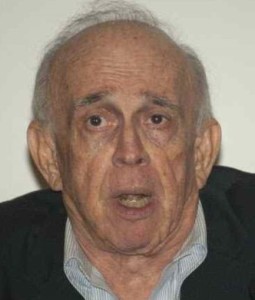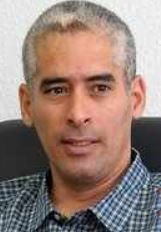
Rumor of Cuban presence in Syria was ‘disinformation,’ expert says
An unconfirmed report that Cuban troops had landed in Syria to fight against opponents of President Bashar al-Assad on behalf of the Russian government was described in Moscow as “disinformation” and “information warfare” by the vice president of the Russian Society of Friendship with Cuba, Air Force Maj. Gen. Mikhail Markovich Makaruk (in photo above.)
The general’s comments, published Friday (Oct. 23) by the newspaper Pravda, were in response to a rumor floated last week by the University of Miami’s Institute for Cuban and Cuban-American Studies (ICCAS) and disseminated by anti-Cuban media outlets.

[For background in Progreso Weekly and a commentary on ICCAS’ director, Jaime Suchlicki, click here. For a commentary in Spanish in Cubainformación TV, click here.]
From the start, the unsubstantiated rumor met with general incredulity. A Cuban Embassy spokesman in Damascus called it “absurd, a huge nonsense,” according to the Sputnik news agency. The same spokesman told the Novosti news agency that the rumor was “just cretinous.”
“I have serious doubts about the veracity of the item in question,” said Ivan Konovalov, director of the Center for Strategic Conjuncture, quoted by the Free Press agency in Moscow. No Russian Defense Ministry official deigned to give credibility to the rumor by commenting about it.
Spokesmen for the U.S. State Department and the White House declined to comment because of the unverified nature of the allegation. Major U.S. newspapers ignored it for the same reason.

Finally, in a blunt one-sentence statement issued Oct. 17, the director general of Bilateral Affairs of the Foreign Ministry of Cuba, Gerardo Peñalver Portal, “categorically denie[d] and refute[d] the irresponsible and unfounded information about the alleged presence of Cuban troops in the Syrian Arab Republic that some press media have echoed.”
In this week’s Pravda interview, Makaruk, an expert on Cuban affairs, called the rumor “a preemptive strike” from the anti-Cuban lobby in Miami, intended to dissuade Cuba from aiding Russia in its support for the Assad government, now confronting oppositionists and Islamic zealots.
“The Cuban Army is combat-ready,” the general said, but after years of neglect by the government of Russian President Boris Yeltsin in the 1990s, “its logistical status leaves much to be desired. The army needs retooling,” he added, suggesting that international military engagements by Cuba would be unwise at this time.
On other subjects, Makaruk said that the United States’ effort to normalize relations with Cuba is so far limited only to protocol gestures. Washington opened an embassy in Havana and removed Cuba from its list of countries that support terrorism, he said, but it has not lifted its economic blockade or repealed a law that denies access to foreign ships that have previously visited Cuban ports.
Thus, the so-called “normalization” is nothing but an imitation of improved relations, the general said. Washington’s plans are to “extend its tentacles to find someone to install in power [after Ra˙l Castro departs] and then do everything possible to tear Havana away from Moscow.”
That strategy won’t work because Cuba and Russia are strategic partners, even if Cuba establishes relations with the United States, he added.
Makaruk believes that Russia should increase its presence in all of Latin America and mentioned “a large Russian-speaking diaspora in Argentina and Uruguay.” Such an outreach “does not require large investments but can provide large returns,” he told Pravda.

